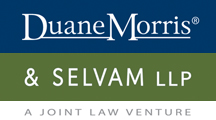11 April, 2018
The doctrine of unconscionability is a legal tool for parties of a contract to set aside a transaction that was entered into under circumstances that a court deems unconscionable.
There is no doubt that the doctrine is still in a state of a flux. In general, the following elements need to be present: 1) the plaintiff is, in a sense, poor and ignorant; 2) the transaction was at a considerable undervalue; and 3) the plaintiff did not have independent advice.
If these elements are present, the burden then shifts to the defendant to prove that the transaction was fair, just and reasonable in order to prevent the transaction from being set aside.
As the doctrine of unconscionability developed, the elements of unconscionability were modified.
In England, the doctrine was narrowed by the inclusion of an additional element – the defendant must have imposed the objectional term(s) to the transaction in a morally reprehensible manner.
In Australia, the doctrine was expanded. Unconscionability may be invoked when the plaintiff is at a special disadvantage in relation to the defendant, and the defendant took unfair or unconscientious advantage of such opportunity.
Previous decisions in Singapore had made it clear that Australia’s position on this doctrine did not form part of the law in Singapore. This, however, left the doctrine with no clarity as to what constituted a poor and ignorant plaintiff. Whether or not the defendant had taken advantage of the plaintiff in a morally reprehensible manner was also unclear.
The doctrine of unconscionability was raised before the High Court in BOK v BOL [2017] SGHC 316. On the facts, the plaintiff, a man of substantial means, had signed a handwritten declaration of trust, which constituted him and his wife as trustees of all his assets for the sole benefit of their infant son. The declaration of trust was signed by the plaintiff three days after the plaintiff’s mother was killed, after persuasion of the plaintiff’s wife, the second defendant in the proceedings. The plaintiff commenced proceedings to set aside the declaration of trust.
After careful consideration of the jurisprudence of the doctrine of unconscionability, the High Court formulated a new test based on the old elements:
- The plaintiff must be suffering from some weakness. Weakness includes poverty, ignorance or other circumstances such as acute grief. Lack of independent advice would likely serve to deepen such weakness.
- There must be an exploitation, extortion or advantage taken of that weakness. The exploitation, extortion or advantage must result in a transaction at an undervalue.
If the criteria is met, the defendant must then show that the transaction was fair, just and reasonable in order to prevent the transaction from being set aside.
What is now clear is that a special disadvantage is not enough for a plaintiff to rely on the doctrine of unconscionability in Singapore. However, moral reprehensible conduct by the defendant is also not required under Singapore law.
For further information, please contact:
Harry Zheng, Duane Morris & Selvam
hzheng@selvam.com.sg





